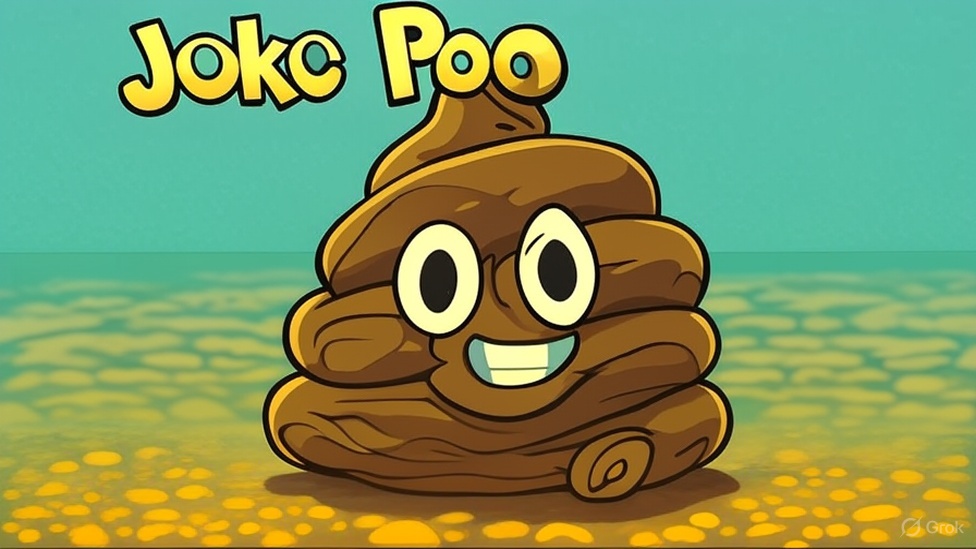So this guy is learning to be a standup comic, and he gets his mother to be his test audience:
"So here's the joke, Mom. Two tourists are walking down the street in Honolulu, arguing about how to pronounce the name of the state.
One says, 'It's spelled with a W, so it has to be "Hawai'i".'
'No, no', says the other. 'Totally wrong. The proper pronunciation is "Havai'i".' They go back and forth for a while.
'Look, see that guy there? Obviously a local. Let's ask him.'
'Okay, fine…. Excuse me! Is the state called "Hawai'i" or "Havai'i"?'
'Havai'i.'
'Thank you!'
'You're velcome.'"
Silence.
"I don't get it", says the mother. "Vot's funny?"
[Both pronunciations are correct in Hawaiian.]
Joke Poo: The Tech Support Paradox
So this coder is workshopping a joke at a comedy open mic, and he asks the bartender to be his test audience:
“Okay, here’s the bit. Two programmers are stuck in a debugging session, arguing about the correct way to spell the word ‘cache’.”
One says, “It’s obviously spelled with a ‘c’ before the ‘a’, therefore it’s ‘cache’ like treasure!”
“No, no,” says the other. “Totally wrong. Given the context of computing, the correct pronunciation is ‘kaysh’.” They go back and forth for a while.
“Look, see that AI chatbot over there? It knows everything. Let’s ask it.”
“Okay, fine…. Excuse me! Is the word spelled ‘cache’ or ‘kaysh’?”
The chatbot responds, “kaysh.”
“Thank you!”
“No problem. Just initializing now…”
Silence.
“I don’t get it,” says the bartender. “Why is the chatbot speaking gibberish and going offline?”
[Both pronunciations are correct, but AI chatbots struggle with specific colloquial spellings or contexts that are nuanced and it gets caught in a loop trying to learn it, thus crashing.]
Alright, let’s dissect this comedic construct like a particularly stubborn pineapple.
Joke Analysis:
- Core Element: The humor relies on the misunderstanding of Hawaiian pronunciation and the setup of the “ask a local” trope. The punchline, “Havai’i. You’re velcome,” combines a correct pronunciation with an exaggerated accent, creating a double layer of humor (the answer is technically correct, but delivered in a way that highlights the tourists’ own misunderstanding of the local culture).
- Humor Type: This is a situational joke with a touch of observational humor (the tourists’ arrogance) and a dash of self-deprecating humor (the comedian’s failing joke). The mother’s “I don’t get it” adds a meta-comedic layer, highlighting the joke’s reliance on specific knowledge.
- Key Themes: Pronunciation, cultural misunderstanding, tourist stereotypes, the ‘local expert’ trope, and the comedian’s insecurity.
Enrichment & New Humor:
Here’s a joke that builds upon the themes, incorporates a little etymological fact, and adds a twist:
New Joke:
A linguist is giving a lecture on the evolution of language. He’s talking about how sounds shift over time and how words morph and change. He uses the Hawaiian language as an example.
“Take the word ‘Hawai’i’, for example,” he says. “The ‘W’ sound in Hawaiian is a relatively recent development. For centuries, it was pronounced with a ‘V’ sound. In fact, Captain Cook himself recorded the name as ‘Owhyhee’, which is closer to the original pronunciation.”
A student raises her hand. “So, you’re saying that if Captain Cook returned today, he’d still mispronounce ‘Hawai’i’, but just in a different, even more historically accurate, way?”
The linguist sighs. “Yes. And he’d probably complain about the price of shave ice.”
Why this works:
- Builds on the Original: It still involves Hawaiian pronunciation, but adds a layer of linguistic context (the shifting “W” and “V” sounds).
- Factual Integration: The reference to Captain Cook’s “Owhyhee” is a genuine historical tidbit.
- Twist: The punchline flips the original joke’s premise. Instead of locals being asked how to pronounce things, Cook’s historical mispronunciation is now highlighted.
- Observational Comedy: The shave ice price is a nod to tourist complaints and cultural tourism.
- Meta Element: We can imagine the linguist telling this joke to a less-than-impressed audience, like the mother in the original.
Another approach would be a witty observation:
Witty Observation:
“Being a tourist in Hawai’i is a constant exercise in phonetic humility. You’re never quite sure if you’re butchering the language, or if the language is simply enjoying a playful disagreement with your tongue.”
This observation captures the feeling of being a tourist trying to navigate a language with nuances and variations, making it relatable and humorous.


